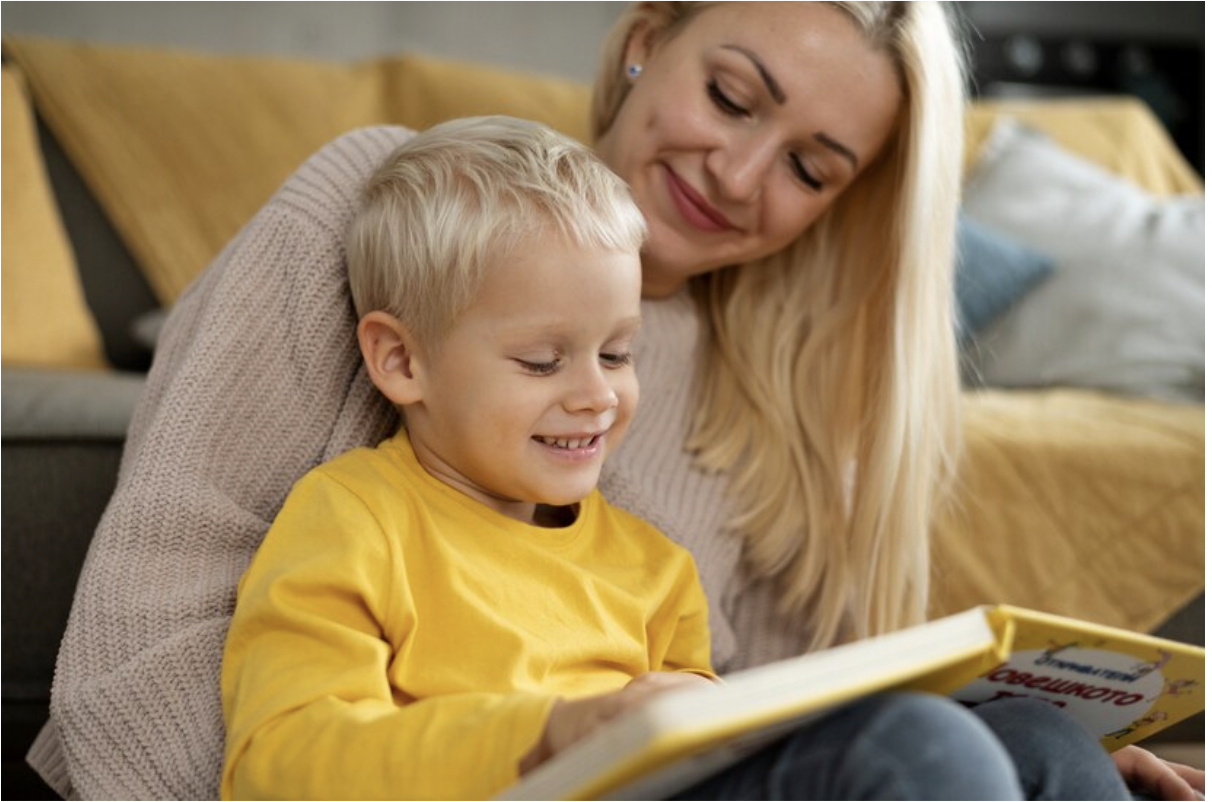The Role of Reading in Early Childhood Education and Parenting

Reading to a child is like planting seeds in fertile soil. Those seeds? Words. Sentences. Ideas. The soil? A young, developing mind. And when parents, those first teachers, take up the book and begin to read aloud—magic happens. Not the kind of magic with wands and spells, but something more profound. Real magic that shapes a child’s brain, emotions, and even the way they see the world. It is a gentle process, almost invisible, yet its effects are monumental.
Why Start Early? The Foundation of Early Literacy
Why start reading early? Why, indeed? The answer, deceptively simple, lies in the very nature of early childhood reading. Imagine a young child’s brain, soft and malleable, absorbing every bit of information like a sponge. Now, pour in the words, the sounds, the rhythm of language. This is how early literacy development begins. Not with formal lessons or rigorous drills, but with the lilt of a parent’s voice, the turning of pages, the dance of letters forming words. It’s in these moments that the foundation of literacy is laid—brick by brick, word by word.
This early exposure to books doesn’t just teach a child to read. It does more. Much more. It introduces them to the structure of language. To the patterns of sounds and the flow of sentences. It’s about phonemic awareness, a crucial skill where a child learns to identify and manipulate individual sounds in words. Before they even understand what a word is, they are already grasping the music of language. They start recognizing that the word “cat” is made up of three sounds: /k/, /a/, and /t/. And this recognition? It’s fundamental. Essential for later reading and writing skills.
Parenting and Literacy: An Inseparable Bond
Educational parenting tips often emphasize the importance of creating a reading routine. Yes, a routine—predictable, reliable, comforting. But why? Why is this routine so critical? It’s because children thrive on consistency. When they know that every night, as the day ends, a story will be read, they begin to associate reading with comfort, with security. This daily ritual doesn’t just foster a love for books—it strengthens the bond between parent and child. It becomes a shared experience, a special time that is theirs alone.
Moreover, when parents model reading as a valued activity, they send a powerful message: reading is important. And this message? It's loud and clear. It doesn't matter whether they like to read werewolf fiction or romance stories, so don't tell them what to choose. Let this be a place of importance. A place of joy.
The Cognitive Advantages of Reading
The benefits of reading to a child? They’re vast. Unmeasurable, even. Cognitive benefits, social benefits, emotional benefits. Let’s start with the cognitive. Every time a child listens to a story, they’re not just being entertained. Their brain is working—hard. They’re being introduced to new words, new ideas, new worlds. Every story is a lesson. A lesson in vocabulary, in sentence structure, in the flow of language. And what happens when a child’s vocabulary expands? Their ability to express themselves, to communicate, grows. Suddenly, they have the words to describe their world, their feelings, their thoughts.
But there’s more. Reading also improves a child’s concentration and focus. In a world where attention spans are shrinking, where instant gratification is the norm, reading teaches patience. It teaches children to sit still, to listen, to follow a story from beginning to end. This ability to focus? It’s not just a skill for reading. It’s a skill for life. For learning. For problem-solving. For success.
The Emotional and Social Impact of Stories
Now, let’s talk about the emotional and social impact of reading. Stories aren't just words on a page. They're windows into other worlds. They’re mirrors reflecting a child’s own experiences. And there can be a huge number of them, especially for those who use FictionMe with its endless library. Through stories, children learn about emotions. They learn about empathy. They see characters face challenges, deal with fears, overcome obstacles. And in these stories, they find a safe space to explore their own emotions.
Imagine a child, worried about starting school, hearing a story about a little bear who feels the same way. Suddenly, they're not alone. Their feelings are validated. They see that others have the same fears—and that those fears can be overcome. This emotional connection? It's powerful. It's transformative.
Reading together also builds trust. The physical closeness of sitting together, the shared experience of the story, the quiet time spent in each other’s company—these moments create a bond. A bond of love, of security, of trust. And this bond? It’s the foundation for a child’s emotional well-being. For their ability to form healthy relationships. For their future success in life.

Practical Tips for Educational Parenting Through Reading
So, how can parents harness this power? How can they make reading an integral part of their parenting? Start simple. Start small. Choose a time every day to read together. It doesn’t have to be long—just a few minutes will do. The key is consistency. Make it a routine. A habit.
Choose books that engage your child’s interests. Whether it’s dinosaurs or princesses, trucks or animals, find books that captivate them. And as they grow, introduce more complex stories, stories that challenge their understanding, that make them think.
But don’t just read the words. Make it interactive. Ask questions. Encourage predictions. Let your child tell the story in their own words. These interactions deepen their engagement, their understanding, their love for reading.
And finally, remember that reading isn’t just about books. It’s about language. So, read everything. Read signs, read recipes, read the newspaper. Show your child that reading is everywhere. That it’s a part of life. A part of learning. A part of growing.
Conclusion
In the grand scheme of early childhood education and parenting, reading plays a central, undeniable role. It’s not just about teaching a child to read. It’s about shaping their future. Their mind. Their heart. Their world. By making reading a priority, by weaving it into the fabric of daily life, parents can give their children a gift that will last a lifetime. A gift of knowledge, of imagination, of connection. A gift that will grow with them, that will guide them, that will light their way in the years to come. So pick up a book, turn the page, and let the journey begin.






